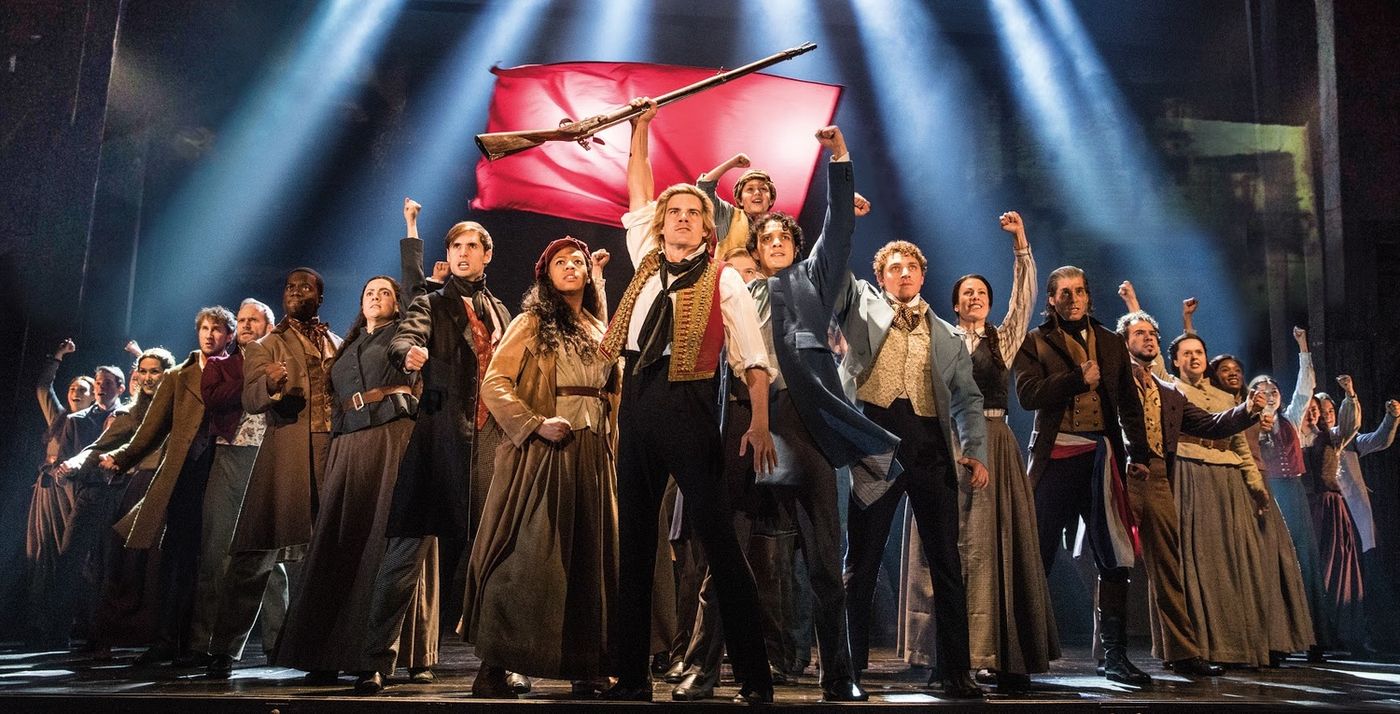Review: Touring LES MIZ! Les Okay! at the Connor Palace

From the very first time I saw "Les Miserables," shortly after its opening in London, to the New York production, and through the various touring shows, I have been a fan of the show. Not just a fan, a fanatic fan!
Interestingly, when "Les Miz" first opened in London in 1985 the production was generally met with tepid reviews. This was a musical about greed, child abuse, revolution and cruelty. It contained thwarted idealism, frustration and the seeming defeat of good by evil.
This is a musical with the word "miserable" in the title, has physical beatings and numerous onstage deaths, and lacks a typical happy ending. Is this the stuff musicals are made of? Not usually. But, there is no reason that serious subjects cannot be treated in the musical form. Les Miz proves that contention, as does "Next to Normal" and "Dear Evan Hanson," and proves it well.
There is also no reason that strong emotions about death cannot be visualized as "empty chairs at empty tables," or hope cannot be expressed as, "there is life about to start, when tomorrow comes," or, that infatuation cannot be explained as "a heart full of love," or the future can't be prophesized as, "I dreamed that love would never die," and a powerful story can't be summarized with the musical's ending lyric, "To love another person is to see the face of God." Yes, these are all lyrics conceived by Herbert Kretzmer and set to the emotionally charged music of Claude-Michel Schönberg. These are the thoughts of a potentially great musical.
"LES MISÉRABLES" is an epic 1862 French tale by Victor Hugo, one of the greatest novels of the nineteenth century. Though long and complex, the basic story line centers on a period in the early nineteenth century, which culminated in the unsuccessful June Rebellion. This is not the larger French Revolution of 1788 that overthrew the absolute monarchy of the Bourbons and the system of aristocratic privileges,as many assume.
The story revolves around Jean Valjean, who was caught when he stole a loaf of bread to feed his starving nephew. Imprisonment, frustration and moral awareness are pivotal ideas of the story. It is played out in front of the history of France's politics and what is meant by the concept of justice. It is fiction broadly entwined within factual and historical events.
In 1987, the musical debuted on Broadway.After 6,680 performances spanning sixteen years,it closed on May 18, 2003, making it one of the longest running Broadway shows. Revivals and a movie followed that run.
THE advanced publicity for this touring show indicates that the production has been reconceptualized. The music has been reframed, some of the songs reinterpreted, there is new staging and reimagined scenery inspired by the paintings of Victor Hugo. In addition, it is noted thatthe attitude is more somber, more dramatic.
I wish I could say that I was as enamored by this staging as those I have seen in the past. Though I still found it fascinating, I also perceived that the energy level was not the same as in the past. Maybe it's because the show has been on the road since September, 2017 and the cast is exhausted or on auto-pilot. Maybe it's all the darkness. Not the seriousness of the story, but the overly somber heavy set and dim lighting. Maybe it was the sometimes languid pace.
Even the usually ridiculous, over-the-top "Master of the House" and "Beggars at the Feast," which are "noisy numbers" inserted usually in mid-first and second acts to excite the audience and keep their attention, didn't render their usual farcical joy.
The cast generally sings well though some of the vocal-blendings appeared off. Thankfully they interpreted the lyrics rather than just singing words. The company's "One Day More"was a show stopper.
Nick Cartell, who is believable as Jean Valjean, sings the role with a full voice and adds a youthful presence not always found in the actors who are cast in the taxing role. His "Who Am I"and "Bring Him Home"were excellent.
Mary Kate Moore (Fantine) grabbed the emotions of the audience with "I Dreamed a Dream." Paige Smallwood was compelling as Eponine and received an extended ovation for her well-nuanced "On My Own." Josh Davis was evil incarnate as Javert.
Locals might have noted that Gabe Brown, a University Heights resident and Baldwin Wallace musical theatre graduate, played a prominent chorus role. They might even get to see him as Marius if Joshua Grosso, who charmingly plays the role, is out for a performance or two."
CAPSULE JUDGEMENT: LES MIZ! Les Okay! The touring version is not as compelling as other productions, but still a captivating piece of musical theater.
For tickets call 216-241-6000 or go to www.playhousesquare.org.
Reader Reviews
Videos

